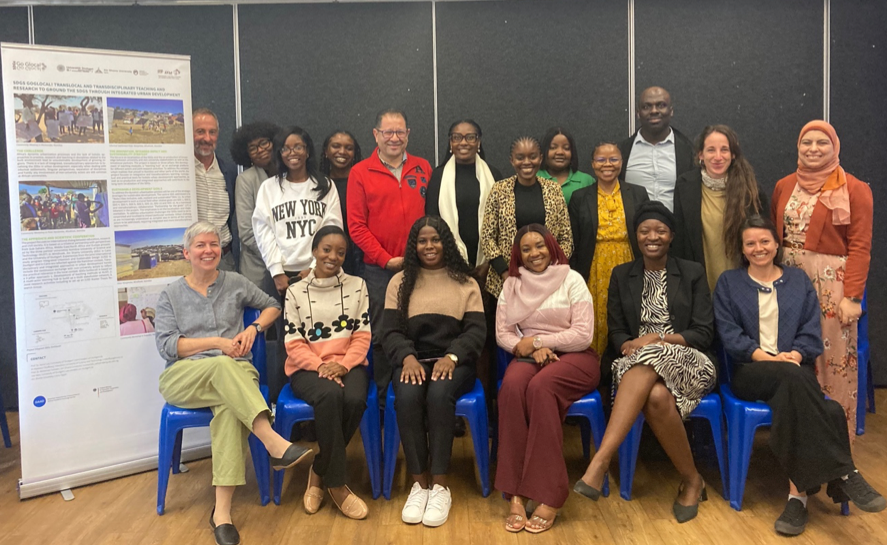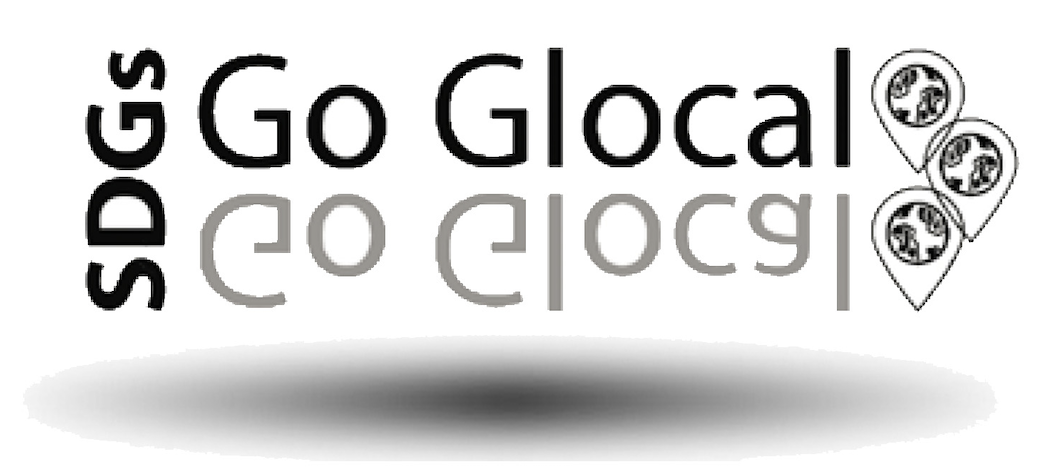SDG GoGlocal Holds 3rd Annual Review and Planning Workshop at NUST
The SDGs GoGlocal! research project seeks to strengthen trans-local and transdisciplinary research and teaching, focusing on meaningfully localizing and grounding the Sustainable Development Goals (SDGs) in urban planning and development practice. This initiative is a trilateral partnership between the University of Stuttgart in Germany, the Namibia University of Science and Technology (NUST) in Windhoek, and Ain Shams University (ASU) in Cairo, Egypt benefiting from a transnational perspective. Additionally, the project will draw on the MSc Integrated Urbanism and Sustainable Design (IUSD) programme, working with civil society organisations such as the Namibia Housing Action Group (NHAG), the Shack Dwellers Federation of Namibia (SDFN), as well as representatives from local government and private sector.
SDG GoGlocal Hosts 3rd Annual Review and Planning Workshop at NUST
From 12–16 May 2025, the SDG GoGlocal project convened its 3rd Annual Review and Planning Workshop at the Namibia University of Science and Technology (NUST) in Windhoek. The event brought together project partners to review progress and strategically plan the next phase of activities across the project’s three core pillars: Teaching, Research, and the Learning Hub.
Teaching Pillar: The workshop reaffirmed the project's commitment to co-teaching and co-learning through the co-production of knowledge. This is achieved by fostering collaboration between academic staff and non-academic partners, particularly from civil society and the professional sector.
Research Pillar: The 2025 master's thesis group shared updates on their fieldwork and preliminary findings. Discussions also explored innovative methods for reporting on the localisation of the Sustainable Development Goals (SDGs). As part of the programme, supervisors and students participated in a field excursion to familiarise themselves with the local context. This allowed supervisors to gain valuable on-the-ground experience, helping them better guide students in the next phases of their research.
Learning Hub: Stakeholder engagement sessions focused on strengthening the Learning Hub as a dynamic space for continuous knowledge exchange, dialogue, and collaboration between academia, communities, and industry. A public lecture was held on 15 May as part of the Learning Hub programme. We were honoured to host Professor Nancy Odendaal, who shared insights from her teaching experiences in South Africa and Switzerland. This South–South and North–South engagement highlighted the importance of building strong, collaborative partnerships for developing localised urban strategies.
Reflections and Moving Forward
A key feature of this year’s workshop was the opportunity to reflect on what worked, what has changed, and what can be improved:
What worked: The integration of academic and non-academic voices through co-teaching, student exchanges, and fieldwork continues to enhance the relevance and impact of the project’s activities. The field excursion and active stakeholder participation were particularly valuable for contextual learning and collaborative planning.
What changed: One notable shift has been the integration of SDG GoGlocal themes into formal curricula, particularly in the teaching pillar. While this reflects progress in institutionalising the project’s approach, it has also come with trade-offs. A key concern raised was the reduced opportunity for interdisciplinary collaboration among programmes, which had previously been a strong feature of the co-teaching model. The restructuring of modules within single disciplines risks limiting the diverse exchange of perspectives that made earlier iterations of the programme especially dynamic and enriching. At the same time, there is growing engagement with local contexts and deeper integration of co-production practices with external partners—signalling positive curriculum evolution alongside areas for continued attention and improvement.
What can be done: Building on this momentum, the project is now focusing on developing long-term strategies to sustain activities beyond the project period. These include expanding student exchange opportunities, creating new pathways for research-based master's, and formalising the Learning Hub as a platform that bridges academia and industry while continuing to support localised, practical urban solutions.


Recent comments